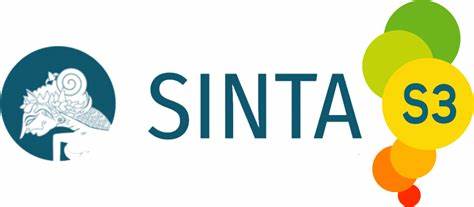EXPLORING THE CONNECTION AMONG LANGUAGE, CULTURE, IDENTITY AND DIFFERENCE
DOI:
https://doi.org/10.22460/eltin.v9i1.p48-55Keywords:
Language, Culture, Identity, Difference, Language learningAbstract
This paper aims to explore the link among language, culture, identity and difference. It is beneficial to analyse because it contributes on the development of language education. The reason is that language learning and culture are inherent each other. This research’s method is the reflective inquiry as the part of qualitative research. This study scrutinises writer’s personal experiences concerning the link among language, culture, identity and difference. Hence, the research’s subject in this research is the writer’s personal experiences. Specifically, the writer’s experiences are intonation in expressing angriness and interacting with Jakarta people. The related experiences are written and collected by taking notes, and it is directly analysed when the data collected. The study’s result indicates that there has been a robust connection among language, culture, identity and difference. One’s culture and language can signify their identity and difference. Therefore, the connection between language, culture, identity and difference is required to explore in order to elicit significant impact on the development of language learning.
Â
Keywords: Language, Culture, Identity, Difference, Language learning
References
Baker, C., & Wright, W. E. (2017). Foundations of bilingual education and bilingualism. (6th ed.). Bristol, UK: Buffalo: Multilingual Matters.
Birks, M., Chapman, Y., & Francis, K. (2008). Memoing in qualitative research: Probing data and processes. Journal of research in nursing, 13(1), 68-75. doi: 10.1177/1744987107081254
Bowden, J. (2015). Towards a history, and an understanding of Indonesian slang. NUSA, 58, 9-24. Retrieved from http://repository.tufs.ac.jp/bitstream/10108/84123/2/nusa5802.pdf
Carter, S. M., & Little, M. (2007). Justifying knowledge, justifying method, taking action: Epistemologies, methodologies, and methods in qualitative research. Qualitative health research, 17(10), 1316-1328. doi: 10.1177/1049732307306927
Clark, U. (2013). Language and identity in Englishes. Oxon: Routledge.
Cunliffe, A. L. (2003). Reflexive inquiry in organizational research: Questions and possibilities. Human relations, 56(8), 983-1003. doi: 10.1177/00187267030568004
Hall, S. (1997). Representation: Cultural representations and signifying practices. London, UK: Sage Publications.
Hall, S. (2013). The work of representation. In S. Hall (Ed.), Representation: Cultural Representations and Signifying Practices (pp. 13-64). London, UK: Sage Publications.
Kramsch, C., Cain, A., & Murphy-Lejeune, E. (1996). Why should language teachers teach culture?. Language, Culture and Curriculum, 9(1), 99-107. doi: 10.1080/07908319609525221
Kramsch, C. (1998). Language and culture. Oxford: Oxford University Press.
Lyons, N., Halton, C., & Freidus, H. (2013). Reflective inquiry as transformative self-study for professional education and learning. Studying Teacher Education, 9(2), 163-174. doi: 10.1080/17425964.2013.808057
Onwuegbuzie, A. J., & Byers, V. T. (2014). An exemplar for combining the collection, analysis, and interpretations of verbal and nonverbal data in qualitative research. International Journal of Education, 6(1), 183. Retrieved from https://search.proquest.com/info/openurldocerror;jsessionid=DE82A5EC9E812AA29FBDEB32BBD12E93.i-069ae8dddd1aec485
Ramadhanti, D. (2018). Characteristic Behaviour in Students Speech with Minangkabau Cultural Setting: Interactional Sosiolinguistics Approach (Wujud Perilaku Berkarakter Dalam Tuturan Siswa Berlatar Budaya Minangkabau: Tinjauan Sosiolinguistik Interaksional). Jurnal Gramatika: Jurnal Penelitian Pendidikan Bahasa dan Sastra Indonesia, 4, 290-303. Retrieved from http://ejournal.stkip-pgri-sumbar.ac.id/index.php/jurnal-gramatika/article/view/2673
Risager, K. (2006). Language and culture: Global flows and local complexity. Clevedon, UK: Multilingual Matters.
Ross, E. W., & Hannay, L. M. (1986). Towards a critical theory of reflective inquiry: Theme. Journal of Teacher Education, 37(4), 9-15. doi: 10.1177/002248718603700402
Tobing, A. P., Panggabean, H., & Sinar, T. S. (2016). Effect-for-cause inferencing in the evaluation of loudness among Toba Batak people. Sociolinguistic Studies, 10(3), 455-474. doi: 10.1558/sols.v10i3.28869
Woodward, K. (1997). Concepts of identity and difference. In K. Woodward (Ed.), Identity and difference (pp. 8-50). London, England: Sage.





